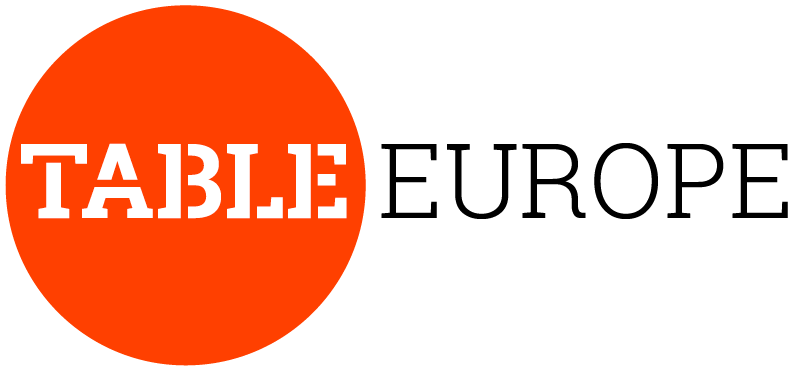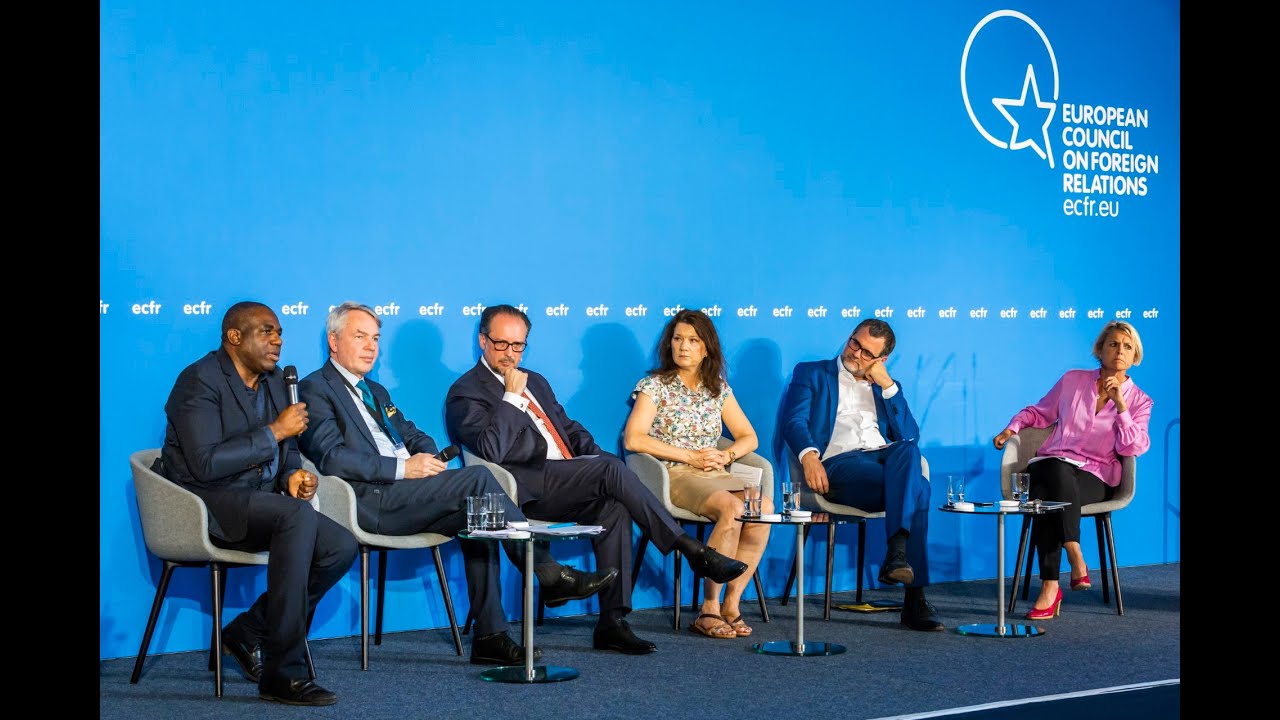Annual Council Meeting 2022 – Zeitenwende for Europe: Building a new global order in times of unpeace
Just days ahead of the G7, EU and NATO summits, ECFR’s Council Members – Europe’s leading decision-makers, opinion-shapers, and public intellectuals – gathered on 19-20 June in Berlin for the ECFR Annual Council Meeting
Russia’s illegal war in Ukraine is a watershed moment for Europe. This is a serious occasion that requires reflection on the profound changes to the global and regional orders. Can Europe prove itself to be a resilient and geopolitical actor, supportive of Ukraine and reliable to partners and allies?
Just days ahead of the G7, EU and NATO summits, ECFR’s Council Members – Europe’s leading decision-makers, opinion-shapers, and public intellectuals – gathered on 19-20 June in Berlin for the ECFR Annual Council Meeting.
Through a series of public panels and private conversations, we looked to unpack how Europe must adapt its foreign and security policy – from defence and security to energy, geo-economics, and technology. Questions we confronted included:
- How can Europeans best support Ukraine against the backdrop of asymmetric interdependencies?
- How does Germany’s proclaimed Zeitenwende affect the international security order?
- Where do emerging Russia-China relations leave Africa, Europe, the Middle East, and the United States?
Now in its 15th year, this flagship gathering has evolved into a key event in the European political calendar. Attendees regularly include heads of state, European commissioners, and senior representatives of the largest NGOs and political think-tanks. These mingle with top journalists and leading academics in pursuit of a more coordinated and effective European foreign policy.

Agenda
Day 1, Sunday 19 June
- 13:40 – 14:00
- Keynote Address
- Wolfgang Schmidt, Federal Minister for Special Tasks and Head of the Chancellery, Germany
- Keynote Address
- 14:00 – 15:00
- Panel I: Building A Geopolitical Europe
Ahead of the G7, EU, and NATO summits, will European and Western unity hold in support of Ukraine? How should Europeans prepare themselves for a changing international order?- Pekka Haavisto, Minister of Foreign Affairs, Finland
- David Lammy, Shadow Secretary of State for Foreign, Commonwealth and Development Affairs, UK
- Ann Linde, Minister of Foreign Affairs, Sweden
- Alexander Schallenberg, Federal Minister for European and International Affairs, Austria
- Wolfgang Schmidt, Federal Minister for Special Tasks and Head of the Chancellery, Germany
- Moderated by Lykke Friis, Co-Chair, ECFR
- Panel I: Building A Geopolitical Europe
- 15:00 – 15:30
- Break
- 15:30 – 15:45
- ECFR Insights: What European voters think about the war in Ukraine
- Europeans have surprised Vladimir Putin – and themselves – with their unity and decisiveness in response to Russia’s invasion of Ukraine. But voters now fear the economic pain of a protracted conflict, according to a new public opinion poll ECFR commissioned in Finland, France, Germany, Great Britain, Italy, Poland, Portugal, Romania, Spain, and Sweden. How can governments strengthen unity and avoid polarisation between and within countries that want an end to the war versus those that want to punish Russia?
- Mark Leonard, Director and Co-Founder, ECFR
- 15:45 – 16:45
- Panel II: Towards a new European Ostpolitik
- Europe urgently needs a courageous new Ostpolitik – one that learns from the failures revealed by Russia’s invasion of Ukraine, but also from earlier successes. What should the new European strategy be for the eastern half of the continent?
- Timothy Garton Ash, Professor of European Studies, University of Oxford
- Enrico Letta, Secretary-General of the Democratic Party, Italy (virtual)
- Norbert Röttgen, Member of Parliament, Germany
- Vessela Tcherneva, Foreign Policy Advisor to the Prime Minister of Bulgaria
- Moderated by Sylvie Kauffmann, Editorial Director, Le Monde
Day 2, Monday 20 June
- 09:00 – 09:15
- Opening and framing of the day
- Lykke Friis, Co-Chair, ECFR
- Opening and framing of the day
- 09:15 – 09:30
- ECFR Insights: Lessons learned from the war in Ukraine
- As the war in Ukraine rages for nearly four months, what lessons can be drawn for Ukraine and for the Europeans about modern warfare? What are the key areas in which European assistance can help make a difference?
- Hanna Shelest, Director, Foreign Policy Council Ukrainian Prism (virtual)
- Gustav Gressel, Senior Policy Fellow, Wider Europe Programme, ECFR
- Hosted by: Marie Dumoulin, Director, Wider Europe Programme, ECFR
- 09:30 – 10:30
- Panel III: The post-post-Cold War era: Europe and the new global order
The war in Ukraine has brought profound changes on how we think of the world and of Europe. It has also led to the emergence of a geopolitical Europe that is looking to be a player in reshaping its own regional order but also take part in a global contest between democratic west and its adversaries. Does this narrative capture the gravity and historic importance of the Ukraine war?- Ivan Krastev, Chair, Centre for Liberal Strategies
- Janka Oertel, Director, Asia Programme, ECFR
- Sergey Radchenko, Wilson E. Schmidt Distinguished Professor, Johns Hopkins School of Advanced International Studies
- Alex Soros, Deputy Chair, Open Society Foundations
- Moderated by Asli Aydintasbas, Senior Policy Fellow, ECFR
- Panel III: The post-post-Cold War era: Europe and the new global order
- 10:30 – 12:30
- Break
- 12:30 – 12:45
- ECFR Insights: The European Sovereignty Index – Facts that Matter
- Are EU member states contributing their fair share towards European sovereignty? ECFR’s European Sovereignty Index is the perfect tool to assess whether member states’ commitments match their actual capabilities in six different policy areas.
- Susi Dennison, Director, European Power Programme, ECFR
- 12:45 – 13:45
- Panel IV: Fit for purpose: What Europe needs to prosper in a new world order
Which tools and capabilities will Europeans need to manage a regional order based on a balance of power rather than on laws and institutions?- Franziska Brantner, Parliamentary State Secretary, Federal Ministry of Economics and Climate Action, Germany
- Arancha González Laya, Dean, Paris School of International Affairs, Sciences Po Paris and former Minister of Foreign Affairs, Spain
- Manuel Lafont Rapnouil, Director, Centre for Analysis, Planning and Strategy, Ministry for Europe and Foreign Affairs, France
- Alexander Stubb, Director, School of Transnational Governance, European University Institute and former Prime Minister, Finland
- Moderated by Jana Puglierin, Head of Berlin Office and Senior Policy Fellow, ECFR
- Panel IV: Fit for purpose: What Europe needs to prosper in a new world order
Media partner

Europe.Table is the daily Decision Brief on Europe’s rapid transformation. Every workday, the briefing reports on political processes relating to digitalization, climate and environmental policy from Brussels, Berlin, and the European centres and provides decision-makers with crucial information. Click here to register for free to receive the Europe.Table for 30 days, every workday, directly sent by email. After the trial period, the test ends automatically.

